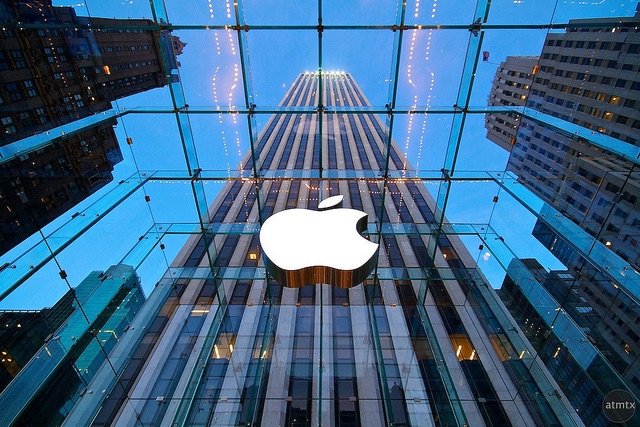And what is the big deal if shareholders decide to take their money elsewhere and sell their stock? First, many financial agreements have debt to equity agreements with their lendees that stipulate if the market cap (stock price x total shares) falls below a certain point, the loan is immediately repayable. This is why everyone panics when a stock market crash begins. Even though this money doesn’t belong to the corporations, these lending agreements can start a wave of loan repayments that companies can’t afford. Many a corporate bankruptcy has started this way. I have no idea if this is relevant to Apple but it would be my biggest concern. The second reason a share sell-off would be a problem is that the laws of supply and demand take over. With a greater supply of shares up for sale, the price of the stock will begin to fall. And the agreement that Apple has with shareholders is that they keep most of their cash, and the stockholder will get their return through stock price appreciation. Falling stock prices can lead to surly meetings with the board for CEO’s.
|
I should have made this point earlier, but Apple shareholders expect a certain return on their investment. I don’t know what that target percentage is, but I do know this, you won’t achieve it by allowing cash to sit in the bank. The board will tolerate a certain level of cash cushion as a safety measure, but above that, Apple is expected to put that cash to work earning a higher return than what you could get from bank interest. If a stockholder wanted to earn what a bank was going to pay, he’d do it himself, and undertake less risk. So Apple sure as heck better put that money too work or wall street starts to sell.
And what is the big deal if shareholders decide to take their money elsewhere and sell their stock? First, many financial agreements have debt to equity agreements with their lendees that stipulate if the market cap (stock price x total shares) falls below a certain point, the loan is immediately repayable. This is why everyone panics when a stock market crash begins. Even though this money doesn’t belong to the corporations, these lending agreements can start a wave of loan repayments that companies can’t afford. Many a corporate bankruptcy has started this way. I have no idea if this is relevant to Apple but it would be my biggest concern. The second reason a share sell-off would be a problem is that the laws of supply and demand take over. With a greater supply of shares up for sale, the price of the stock will begin to fall. And the agreement that Apple has with shareholders is that they keep most of their cash, and the stockholder will get their return through stock price appreciation. Falling stock prices can lead to surly meetings with the board for CEO’s. Comments are closed.
|
Robert PerezManufacturing and distribution analysis since 1993. Perezonomics is available in Apple News
Archives
October 2024
|



 RSS Feed
RSS Feed